Elephants for Africa
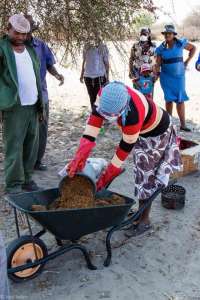 Elephants for Africa focuses its research on male African elephants in Botswana, home to the largest remaining populations of African elephant. The work done by Dr. Kate Evans and her team provides us with continued information about male African elephant society, population numbers, and the interactions between elephants and local Botswanan farming communities through continued research and the use of camera traps.
Elephants for Africa focuses its research on male African elephants in Botswana, home to the largest remaining populations of African elephant. The work done by Dr. Kate Evans and her team provides us with continued information about male African elephant society, population numbers, and the interactions between elephants and local Botswanan farming communities through continued research and the use of camera traps.
 Two years of drought have reduced the river in Botswana to its lowest levels since 2012, when Elephants for Africa moved to the park. Although we’ve seen the river here in Botswana reduced to sporadic pools, the Elephants for Africa team have regularly encountered over 100 male elephants and herds in large numbers congregating along the river beds. They meet to socialize but have also been regularly encountering a diverse collection of neighbors, including hippos and crocodiles, which are now all forced to share space. Elephants for Africa’s research on the sociality and ecology of male elephants in the park continues, with MSc student Connie videoing focal individuals and Research Assistants Helen and Aaron collecting long-term monitoring data.
Two years of drought have reduced the river in Botswana to its lowest levels since 2012, when Elephants for Africa moved to the park. Although we’ve seen the river here in Botswana reduced to sporadic pools, the Elephants for Africa team have regularly encountered over 100 male elephants and herds in large numbers congregating along the river beds. They meet to socialize but have also been regularly encountering a diverse collection of neighbors, including hippos and crocodiles, which are now all forced to share space. Elephants for Africa’s research on the sociality and ecology of male elephants in the park continues, with MSc student Connie videoing focal individuals and Research Assistants Helen and Aaron collecting long-term monitoring data.
This lack of rain has also negatively impacted the local family community. Elephants for Africa launched their Community Coexistence Project in January and is focusing on working with farmers to better understand male elephant behavior to mitigate human/elephant conflict. In addition, the team has helped two farmers establish their chili-growing plots to building chili pepper fencing. These fences help deter elephants from raiding their crops. They are also trying a new form of deterring involved a solar powered light that may help discourage elephants from coming too close.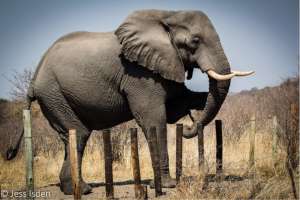
Elephants for Africa has extended their impactful work with the local primary schools. Their Environmental Clubs are going very well, and they have even added another primary school in the Makgadikgadi region that is very isolated but nestles between two national parks, to their program. Elephants for Africa teaches theses students on a range of scientific and environmental topics, including improving recycling and waste management, recreating nest building activities for birds, and comparing animal behaviors at the Boteti River.
With continued support, charities like Elephants for Africa will be able to fund their research and education programs that have become so very vital in the preservation of this incredibly threatened species.
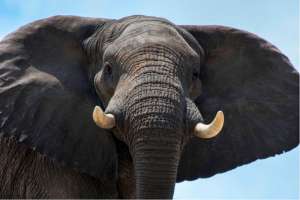 Nate Elgart
Nate Elgart
Elephant Program Manager
Community Coexistence Project – Dr Jess Isden PhD and James Stevens
More photos of how Elephants for Africa is helping

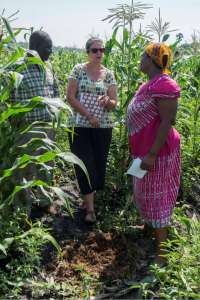
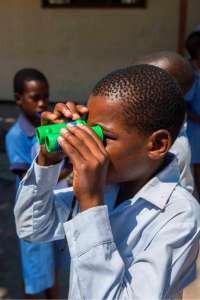
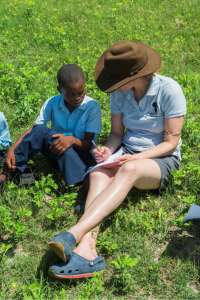

Connect With Your Wild Side #onlyzooatl